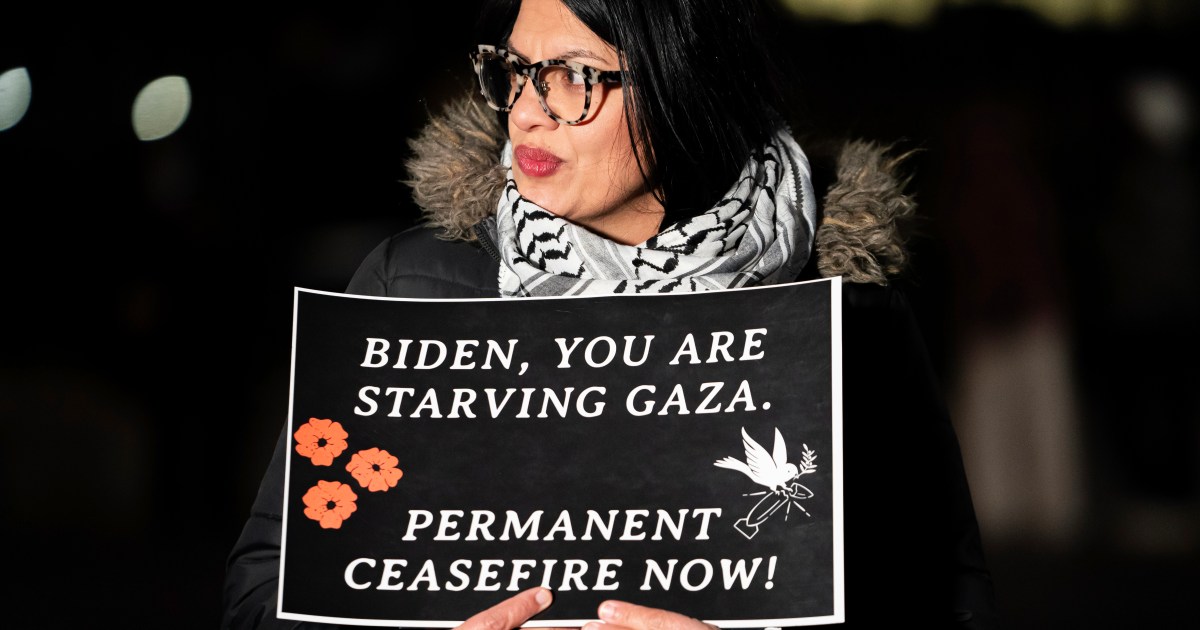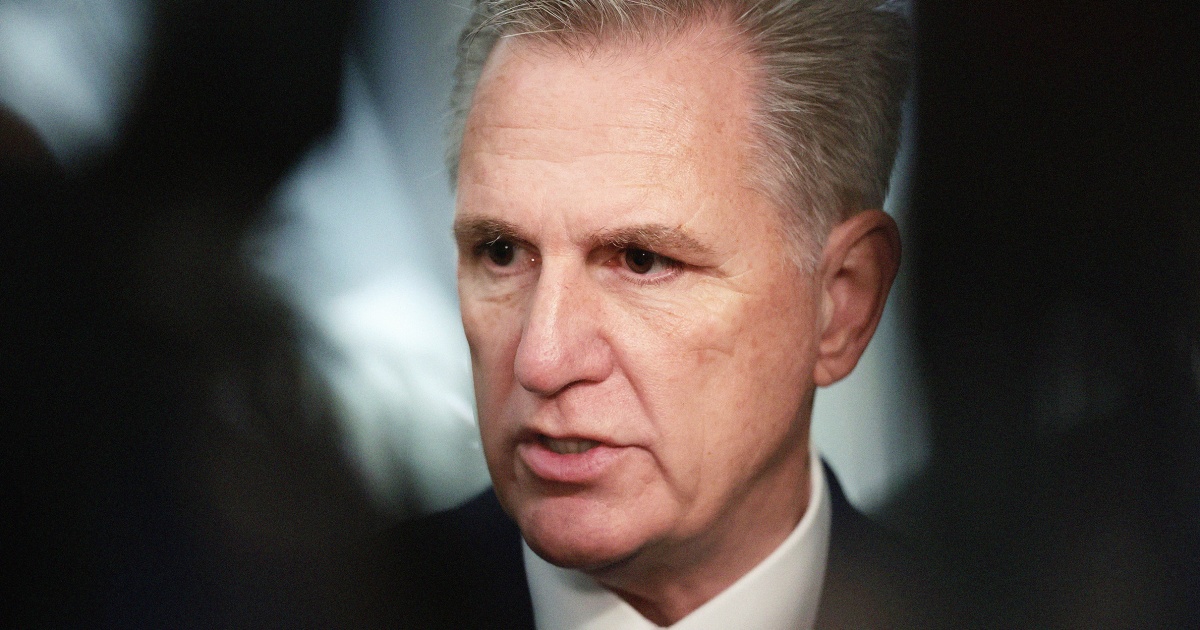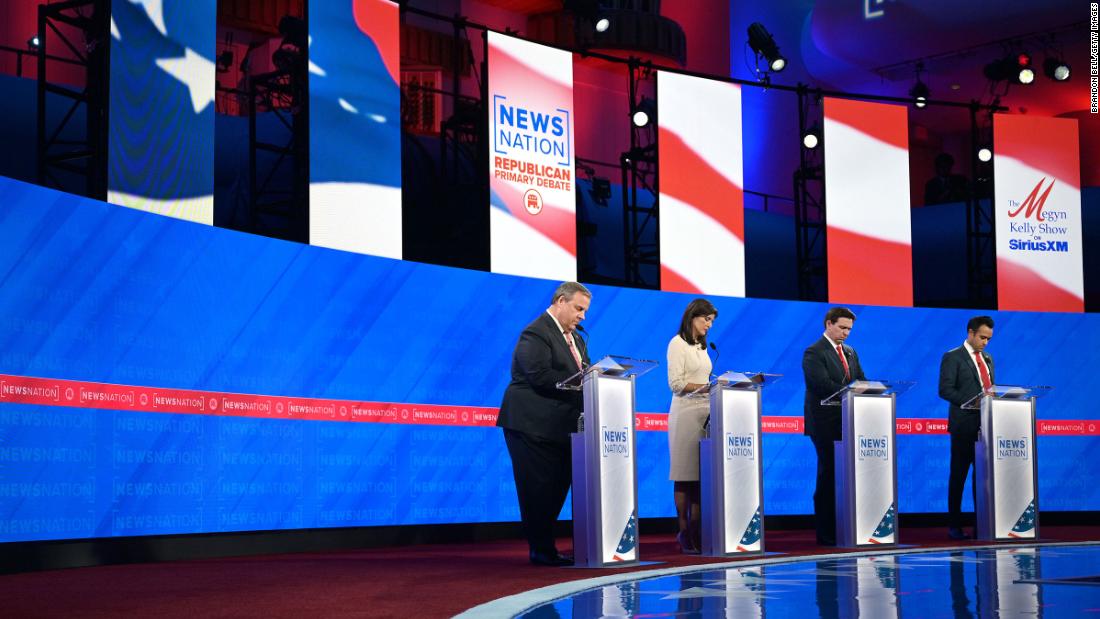Washington, DC – Palestinian rights advocates are denouncing a congressional resolution that equates anti-Zionism with anti-Semitism, calling it a “dangerous” measure that aims to curb free speech and distract from the
war in Gaza.
The Republican-controlled House of Representatives passed the
measure on Tuesday in a 311-14 vote, with 92 Democratic members abstaining by voting “present”.
The symbolic resolution was framed as an effort to reject the “drastic rise of anti-Semitism in the United States and around the world”.
But it contained language saying that the House “clearly and firmly states that anti-Zionism is antisemitism”. It also condemned the slogan “From the River to the Sea”, which rights advocates understand to be an aspirational call for equality in historic Palestine.
Instead, the resolution described it as a “rallying cry for the eradication of the State of Israel and the Jewish people”. It also characterised demonstrators who gathered in Washington, DC, last month to demand a ceasefire as “rioters”. They “spewed hateful and vile language amplifying antisemitic themes”, the resolution alleges.
Husam Marajda, an organiser with the US Palestinian Community Network (USPCN), said the resolution is an effort to “cancel” Palestinian rights advocates by accusing them of bigotry and labelling their criticism of Israeli policies as hate speech.
“It’s super dangerous. It sets a really, really bad precedent. It’s aiming to criminalise our liberation struggle and our call for justice and peace and equality,” Marajda told Al Jazeera.
What is Zionism?
Zionism is a nationalist ideology that helped establish the state of Israel in 1948. It contends that the Jewish people have a right to self-determination in historic Palestine, which Zionists view as their ancestral homeland.
The rise of Zionism in the late 1800s was partly in response to anti-Semitism in Europe.
But many Palestinians reject Zionism as a driver of the settler colonialism that dispossessed them during the founding of Israel. Israel’s establishment coincided with the displacement of hundreds of thousands of Palestinians who were forcibly driven from their homes in what is known as the Nakba, the Arabic word for “catastrophe”.
While Palestinians view themselves as the native people of the land, Zionists say Jewish people have historic and biblical claims to what is today Israel.
Some hardline Zionists, including members of Israeli Prime Minister Benjamin Netanyahu’s government, argue that the present-day Palestinian territories — the West Bank and Gaza — also belong to Israel.
At a United Nations General Assembly speech in November, Netanyahu held up a map of Israel that showed the country stretching from the Jordan River to the Mediterranean Sea, encompassing the West Bank, Gaza and Syria’s Golan Heights.
Some Palestinians also blame Zionism for Israeli abuses against them, which amount to apartheid, according to leading human rights groups like Amnesty International.
In the US, Palestinian rights supporters have long rejected conflations of Zionism with Judaism, noting that many Jewish Americans identify as anti-Zionist.
“Opposing the policies of the government of Israel and Netanyahu’s extremism is not antisemitic. Speaking up for human rights and a ceasefire to save lives should never be condemned,” Palestinian American Congresswoman Rashida Tlaib said in a social media post on Tuesday, explaining her vote against the resolution.
[Cont...]













































